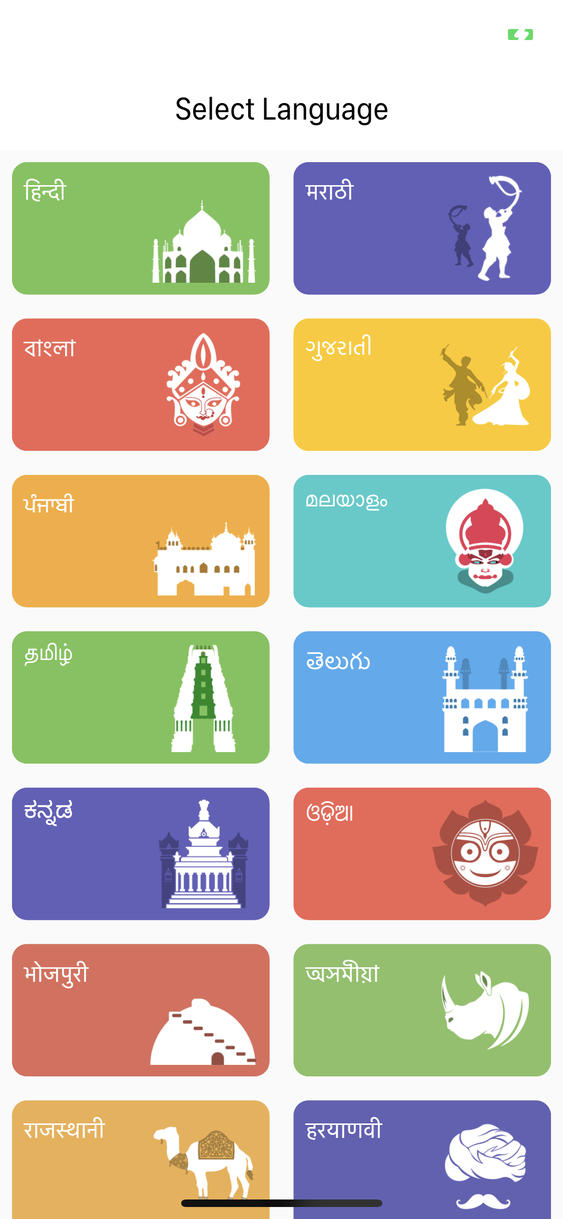ShareChat, the social sharing platform that caters to users across 15 Indian languages, is leaning on artificial intelligence (AI) based solutions to expand its user base among the non- English speaking population. No wonder that the company got on the radar of the big guns like Google, which reportedly sought an acquisition.
The company, which found itself in a good space following the federal government's ban on Chinese brand TikTok earlier this year, believes that it is ideally placed to deliver solutions to the second generation of internet users in the country. "This is the generation that got on to the web when data became affordable and are largely non-English speaking," says Debdoot Mukherjee, ShareChat's vice president, who manages their data science team and AI initiatives.
- Google to invest $10 billion in India on emerging technologies
- Five Indian Apps that made the most of Chinese App ban
- Democratizing edtech: Spayee platform facilitates digital learning
Mukherjee feels that this second generation of internet users have needs that aren't the same as those of the first generation. Over the past two decades, internet users' needs were entirely met by the platforms created in the West, because their needs were the same. "However, the new users, largely from the rural base, have different tastes in terms of content and their needs from the internet are different," he says in a chat with us.
And, this is what has propelled the growth of India-specific products and services such as ShareChat, which currently boasts of close to 200 million users and a valuation in excess of $1 billion. The mobile application offers features such as private messaging, tagging, personal messaging, sharing of videos, jokes and songs based on one's preferred language.

The post-lockdown growth
A couple of months after the Covid-19 lockdown struck and internet usage spiked, the company launched a short video app called Moj which generated 80 million MAUs. Users spent an average 34 minutes on the platform that had more than 50 million downloads on Play Store. Moj is also available in all the vernacular languages that ShareChat operates in, viz., Hindi, Marathi, Bengali, Gujarati, Punjabi, Odia, Tamil, Telugu, Haryanvi, Rajasthani, and Urdu among others.
ShareChat's holding company, Mohalla Tech Private Limited, played it smart by acquiring not one but four companies across domains such as short-video sharing, fashion, meme discovery and hyperlocal data. The company used the $100 million it raised in a Series D funding in August 2019 that was led by Twitter and participated in by SAIF Capital, India Quotient etc. Data with Crunchbase says ShareChat has raised $222.8 million across eight rounds thus far.
How the AI works for ShareChat
The company uses AI to profile user behaviour to deliver engaging content to its user base before marrying it with commerce through targeted advertising. Mukherjee feels that ShareChat and similar platforms have only hit the tip of the iceberg. "To accurately understand the tone and tenor of a video requires a high degree of linguistic nuance. So, we are still work-in-progress," says Mukherjee.
Imagine a video of someone narrating a poem. The algorithm should be such that it figures out whether it is motivational, funny or sarcastic or sombre. This is fairly challenging even with the state-of-the-art AI at present. "And at ShareChat, we are seeking to do so in 15 languages, each of which has a different set of linguistic nuance," he says.
The company believes in the explore-exploit trade-off whereby it ensures that a percentage of the content served to users is around topics that aren't explored by them. So, it is not always about giving people more of what they want, but also exploring whether they are open to some of the newer stuff. "Because, users too get bored of sharing the same stuff and need change from the filter bubble," says Mukherjee.
AI can change user behaviour too
So, what's next for ShareChat? The company is exploring AI options to marry content with commerce. The next phase would involve showing ads that are more contextual and part of the content itself. "For example, can I get connected to a doctor or a lawyer who shares content? Or can I shop for the dress that one of the content shares is wearing? Commerce is poised to take the next big leap and we want to be part of this," Mukherjee says.
Another area where ShareChat has found traction is on the ed-tech front, though not in the form and formats that the competition is playing out. The company has observed byte sized content such as cheat sheets on topics covered in competitive exams being shared. Users save it for later reference, which makes it very specific and niche. "Maybe, there is a game waiting to be played with the long tail of competitive examinations in India, especially since the current ed-tech platforms cater to only the big ones."
To summarise, ShareChat hopes to unlock its potential by working harder to understand the needs of its customer base, not just from an entertainment and social media perspective, but also for building solutions to their mundane challenges. "We aim to be a one-stop-window to service the needs of an India that does not communicate in English," concludes Mukherjee.
Want to know about the latest happenings in tech? Follow TechRadar India on Twitter, Facebook and Instagram!
from TechRadar - All the latest technology news https://ift.tt/34aT6Qj







No comments:
Post a Comment